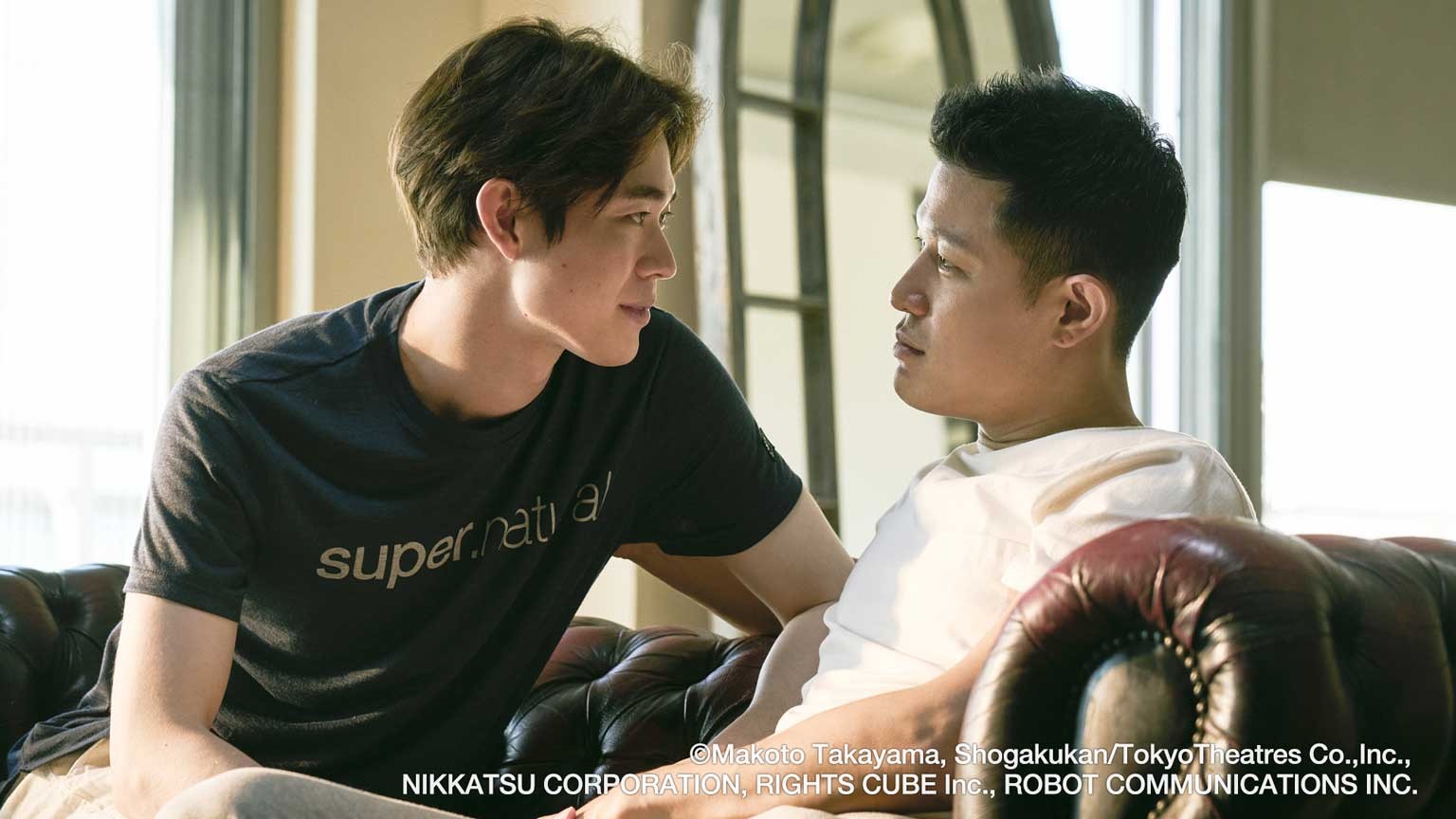Among films drew attention of the audience was "Egoist" — a soulful story of love, sacrifice and life journey of a gay man in the Japanese LGBTQ+ community.
Suzuki Ryohei receives "Rising Star Asia Award"
This year, Suzuki Ryohei, a popular Japanese actor, won the Screen International Rising Star Asia award at the NYAFF for his sensitive depiction of the role of a gay protagonist in the film "Egoist" and his career accomplishments.
"This film is entertainment, but I hope it will be a step that we can contribute to the gay community," Suzuki told reporters upon his arrival on the red carpet. "I hope it will be something that can appeal to the Japanese society and the American society as well."
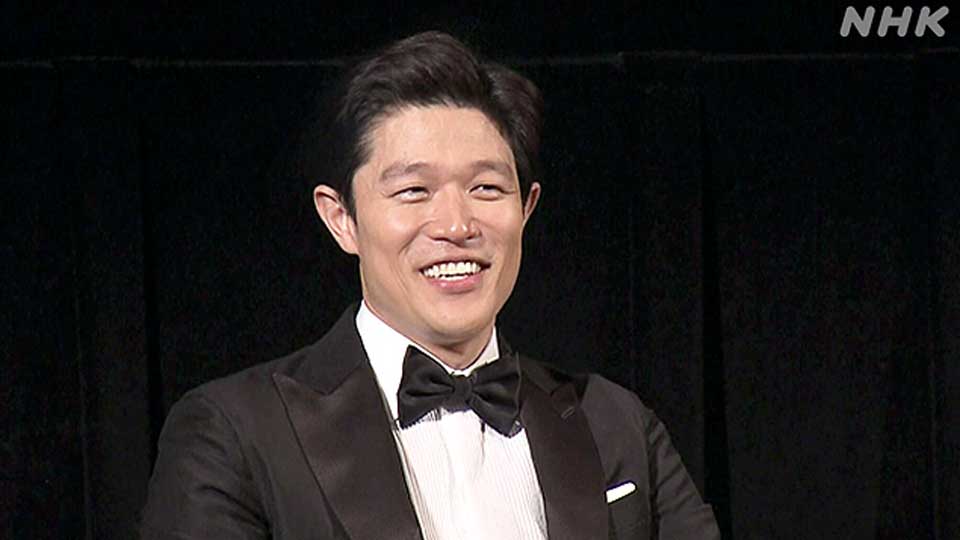
Suzuki walked the red carpet with Matsunaga Daishi, the director of the film. The two have been old friends and both very excited to be in New York for the celebration of the film they created together.
"I'm so happy to be here with my director… A rising star — perhaps it's a morning star? It means a star that's rising, so I will strive to become a real star that can stay where it rose to," Suzuki said with his bright signature smile.
Watch video (2:48): Suzuki Ryohei speaking at the award ceremony in July 2023
Rare LGBTQ+ inclusive production team
"Egoist" is based on an autobiographical novel by a gay author, Takayama Makoto, with the same title. It is a love story between two gay men that evolves into a search for meaning and discovery of universal love. The challenge was how to create a film about a gay couple without gay actors.
"When I was asked if I would like to make a film out of this original story, I thought what was there was a story of universal love, and it was a story of gay people," Matsunaga told audience gathered for a Q&A session after the screening of the film.
Matsunaga revealed that it is the first Japanese film created by a production team with a LGBTQ+ inclusive director and intimacy choreographer. They worked closely with Matsunaga and the cast.
"When I was thinking about how to shape this story with a non-gay team, including myself, I wanted to face the subject and the matter sincerely," Matsunaga continued. "From the research side, from the script to the creation of scenarios, I wanted to make this film with such a team."
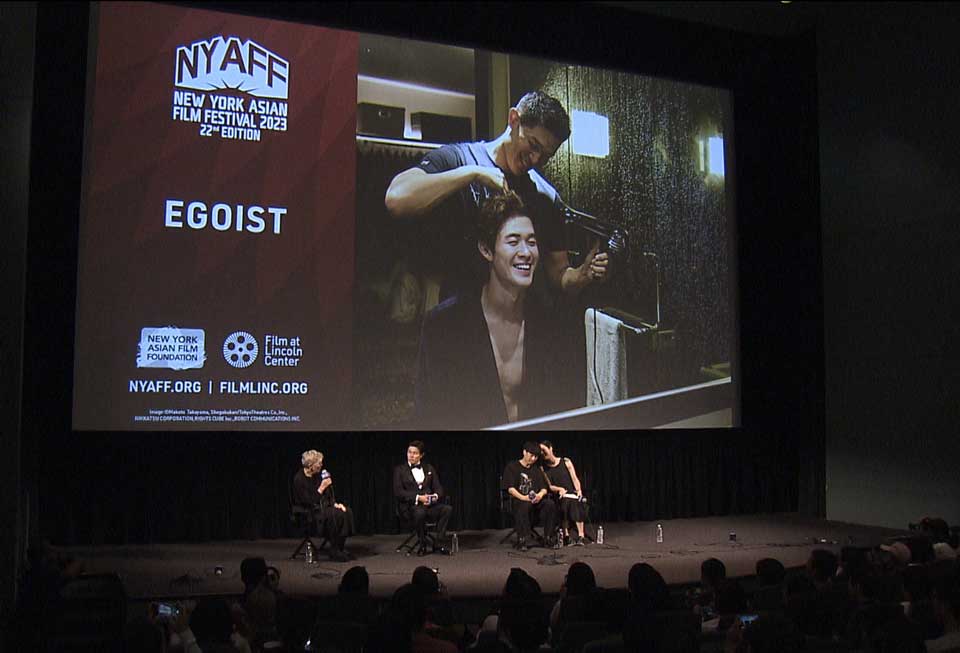
Suzuki said he first hesitated to take the role because he was not gay and wasn't sure if he could truly represent a gay person.
"But then I looked up on the internet to find out if there's any openly gay actor in Japan, and then I found zero openly gay actor in Japan, which is really sad," Suzuki explained in fluent English.
"That means there's still a huge risk for actors in Japan to come out about their sexual orientation. So I was like, okay, we have to start from where we are."

"The most important thing is making queer films like "Egoist" more, so that the society, our society, and the industry can move forward. And, of course, the two of the main guys here are played by hetero actors, me and (Miyazawa) Hio, heterosexual actors. So, the representation is not 100 percent perfect," Suzuki continued.
"But we were all — if we were to do these roles, we wanted to be 100 percent committed, 100 percent respectful, and 100 percent responsible for our characters and also for gay community. So that's what we tried to do."
"We did everything we could do at that moment in Japanese industry. And we're so proud of making this film because I still believe this was a huge step for Japanese industry to move forward, even one step," Suzuki said. The New York audience who just saw the film gave a roaring applause for their effort.
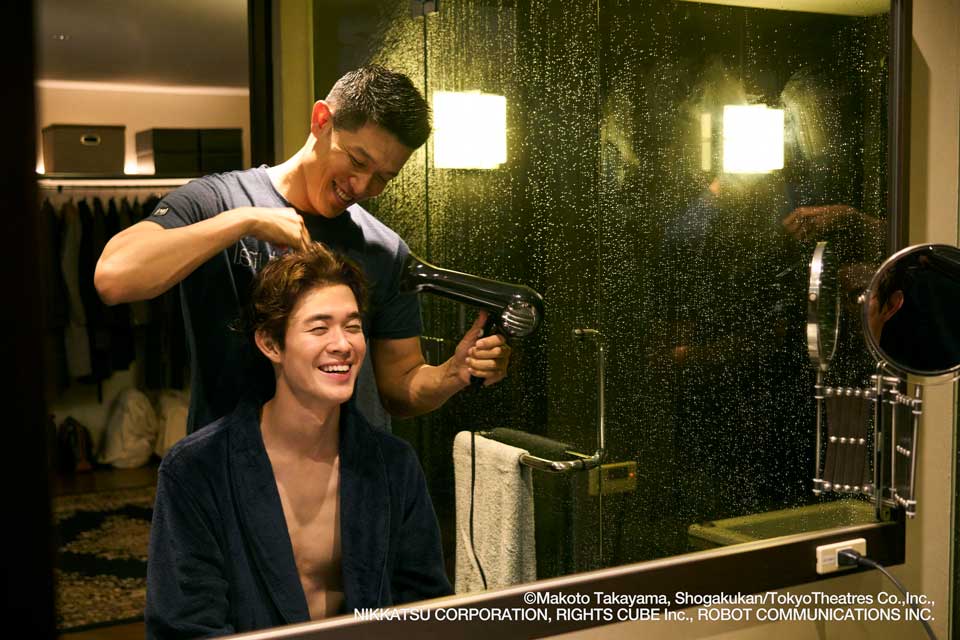
On the set
Aside from two main characters, there are side roles played by non-actors who were recruited from the LGBTQ+ community. One of them actually was a friend of Takayama Makoto, the author of the original novel. Suzuki often consulted with them on his role and actions.
Matsunaga said casting those non-actors in the film was crucial in making of the film. He also felt the inclusive team came together naturally. Miyata Ren who served as the LGBTQ+ inclusive director originally participated as a hair and makeup artist for the film. Seigo, the LGBTQ+ intimacy choreographer, got introduced to the team by Miyata and assisted at every turn as well.
"It was really amazing to have them on set because literally, after every shot, I would go to Ren Miyata, the inclusive director, and to check if that was, that looked authentic or not, if it looked real or not," Suzuki recalled.
"My hand gesture, the way I talk, the way I walk, the way I look at my lover, I checked. I asked him about everything. Of course, before the shooting started, I went through a thorough research, and I interviewed so many people, but I thought it wasn't enough."
Suzuki said he was reassured by the presence of the inclusive team. "Also with Seigo, the intimacy choreographer, we check the same thing. In love scenes we checked our movement or the way we have sex… We tried not to make it something that heterosexual people just imagined that (how) gay people would have sex," Suzuki continued.
"So yeah, it was very lucky for me. And that is also one reason I took this offer because they said they're going to have these two people on the set."
Inspiration behind the title "Egoist"
Matsunaga also explained his thoughts behind naming the film, "Egoist," which usually carries negative image.
"The title is actually the same as on the original book… In the society I feel now, there are times when there is a strong demand for sociality, for others, or to do something for someone. Of course, that's important. But before that, I think, it's ok to take care of yourself and then take care of the person next to you," Matsunaga continued.
"That's why I think it's okay to love someone with your ego. Otherwise, we lose ourselves when we are taking care of others. We also need to love and care for ourselves."
"So, the reason why I put the title "Egoist" in the beginning of the film and then before the ending again is that I hope that the audience, who watched Kosuke played by Ryohei, will think that his actions are not bad, that it is not just an ego, and that the ego is never a bad thing. And I titled it wishing the audience would reconsider the meaning of the word, and I want everyone to take care of themselves."
Directing and acting in LGBTQ+ film
Neither Matsunaga or Suzuki is gay. So, how did they feel directing and acting in the LGBTQ+ film? Matsunaga said he had some fear directing the LGBTQ+ film without having first-hand knowledge of the community.
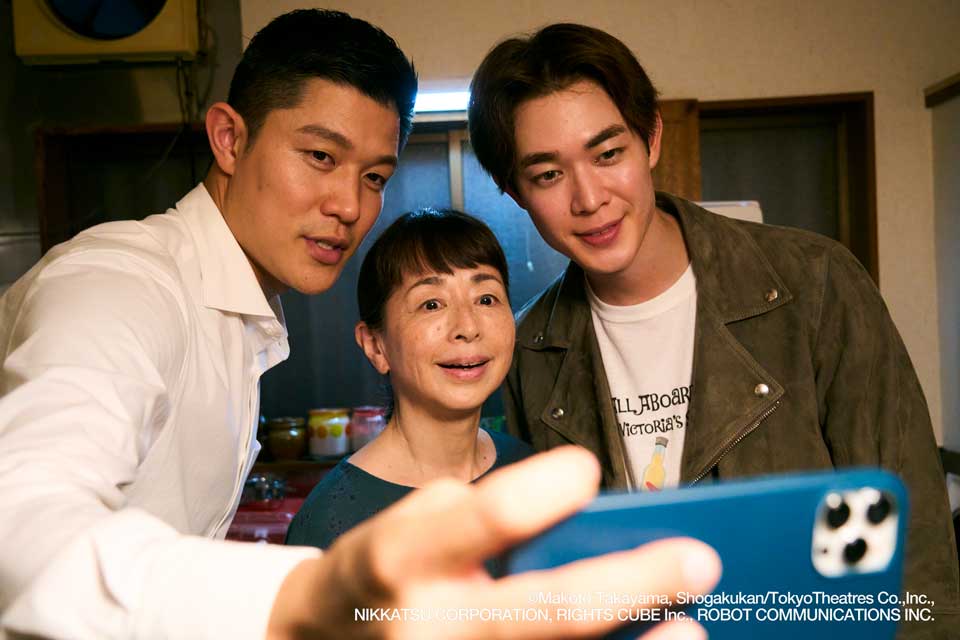
"I always think that lack of confidence is a good thing. I think it's important to be scared. I think I was able to make it because I know how scary it is for me to depict this subject," Matsunaga explained.
"I could not do it without working with the LGBTQ+ inclusive director and the intimacy choreographer, all the staff next to me and Suzuki Ryohei and Miyazawa Hio. If I had been confident, I might have made something different. That's why I think that being scared and not confident is always an important thing to start with."

Through acting the role of Kosuke, Suzuki said he was shocked to find that a gay person had to adjust his or her behaviors in day-to-day life.
"Through the research, I interviewed so many people and many people from the gay community. And some of them had said when they'd go back to their hometown they had to be more like, a straight-passing in front of their family. And that's really important. So he said he didn't like going back to his hometown because it's so uncomfortable," Suzuki explained.
"And at the same time, some people, one of them said he was a dancer, and he has to act more gay in front of a certain artist because that singer likes gay artist, gay dancers, to really act gay. So sometimes they have to exaggerate their movement and the way they talk," Suzuki continued.
"I was really shocked to hear that because I didn't have any idea before I started, before I prepared for this role. So, I really wanted to cherish that feeling. I think it was really important to play differently in front of, you know, depending on who he's talking to."
Film's contribution to the LGBTQ+ community
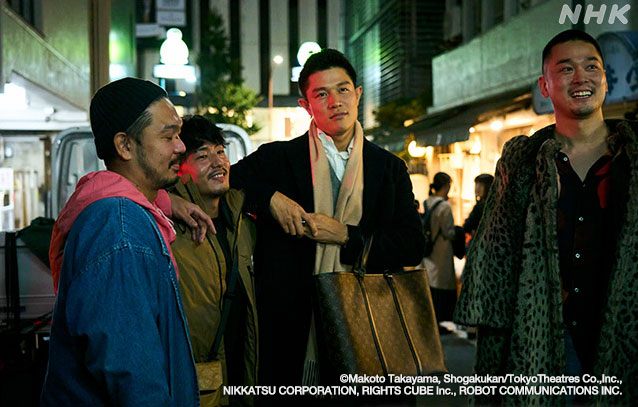
Suzuki said he was very careful of and felt responsible for what he said about LGBTQ+ community in the interviews or for the promotion of the film. He was conscious that what he said could affect the audience as well as the LGBTQ+ community and the society as a whole.
"50 percent of my job was acting in this film, but another 50 percent was talking in the interviews. So that's how I felt, how important, I thought, my talking was. It was really natural for me to support the LGBTQ community," Suzuki reflected.
"If you get to know or if you have an education about being sexual minority, then I think everybody, everyone is going to become an ally. It's so natural for me. So you know, making this film was one of the things I could do to support the LGBTQ community."
Suzuki also felt there are more that could be done for the community. "Saying things like this and saying my opinion about, for example, same sex marriage… They haven't legalized same sex marriage in Japan yet. So, saying that kind of thing in public is not really common in Japan for actors. So, we can start from that and I think there are many things we can do," Suzuki said.
Film's aftereffects
At the end of the Q&A session, Matsunaga told the audience one episode that personified one of his wishes in creating his film.
"There was one cast member, who played the role of one of Kosuke's best friends, who had not or have not been able to come out to his mother that he was gay. But he took this opportunity to show this movie to his mother and came out to her that he was gay."
"At our first screening, he came to me and said, 'Director, I'm going to tell my mother that I'm gay,'" Matsunaga explained choking back tears.
"Movies are better seen by 10 people than one, 1000 people are better than 10 people, and I want many people to see it. I'm not a doctor, so I can't directly save someone's life," Matsunaga continued. "But just as I was hoping that my film would change someone's life for the better, one of my cast members who made this film so close with me told me that. And I was so very happy that he pushed his relationship forward with his mother. Of course, I've received many reactions to the film, but for me, the words of that one actor were very special."
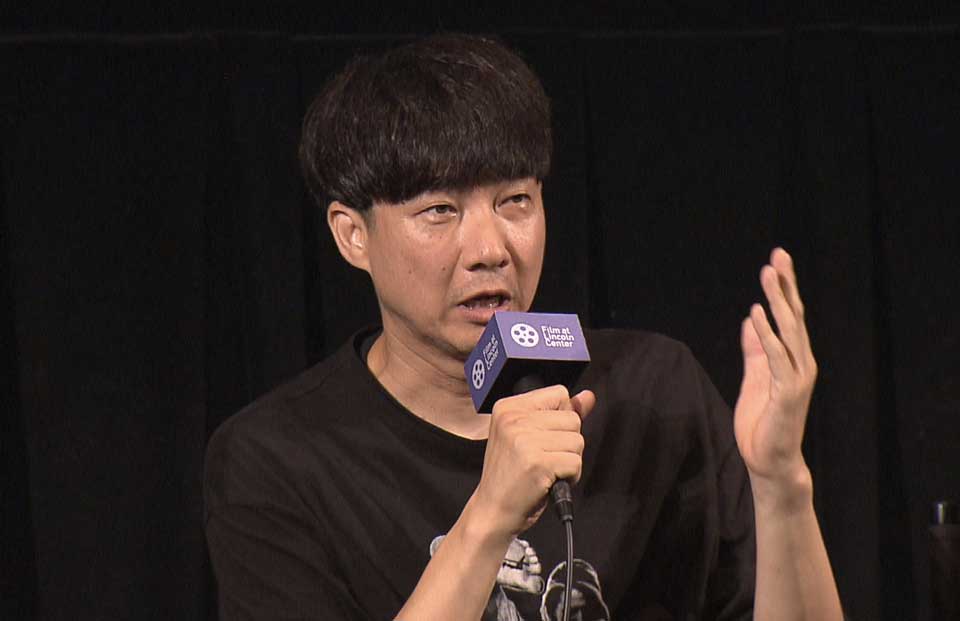
Last words
At the end of the event, Matsunaga recalled the roots of his movie making and thanked the audience.
"I just want to say that I don't think that films are complete until they actually reach the audience. And I fell in love with filmmaking, but it was really American films that made me feel like I wanted to work in film," Matsunaga said. "And so to have my film, this film was so important to me. A film that I made with myself, my very close friend.. To have that actually show in the US and North America and to have a theatrical run is just makes me so overjoyed."
Suzuki asked the NY audience for their feedback looking to the future.
"Good things, bad things... If you felt something, you just tell your friends or write in your social media or anything, please. So if you have something to say to criticize this film that is completely okay, too," Suzuki noted. "That becomes a new power for us, for Japanese (film) industry to make a better movie next time. That's why. Thank you."
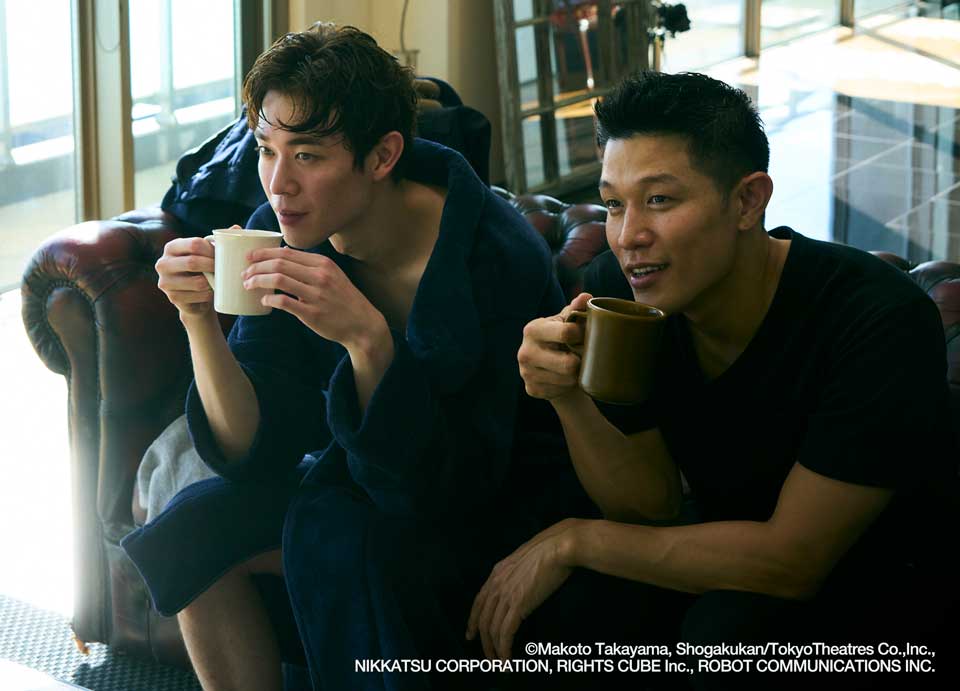
Reporter's note
The New York audience seemed deeply touched by the film, its message of universal love, and the fact "Egoist" filmmakers shared their awareness about the Japanese LGBTQ+ community internationally. Both Matsunaga and Suzuki, too, seem encouraged by this experience to promote the inclusion and diversity further in Japan.
Though Japanese attitudes toward the LGBTQ+ community are slow to change, the fact these young artists and filmmakers are courageous enough to push the boundary forward is perhaps signaling a shift to come in the future.
The film has been released in Korea and Taiwan and is set to be released in the US this fall while it is still on a long run in theaters in Tokyo.
